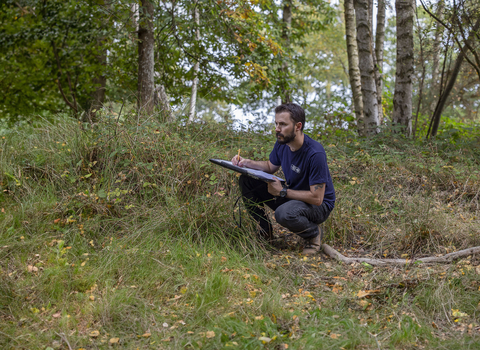Naturally Informed
At Surrey Wildlife Trust, we are committed to finding the long-term solutions to ongoing biodiversity declines that nature so badly needs in our county. Science is at the heart of our decision-making, and we strive to use sound scientific evidence to inform both our policy and our actions. Building this evidence-base is a continually iterative work-stream, ever growing with advancements in applied science and conservation experience. As part of our role to ensure we can contribute to this process, to inform both ourselves and others, we are keen to work with external partners to further understanding of the natural world. You can find out more in our Research & Monitoring Framework:
Click here to see the Framework
There are four themes to this work:
| 1 |
Measuring 'ecosystem health' • Monitoring priority indicator species • Monitoring the quantum and supply of ecosystem services |
| 2 |
Seeking novel solutions • Nature-based solutions • Emerging technologies |
| 3 |
Empowering people • Exchanging knowledge through education and engagement • Assessing barriers to nature connection |
| 4 |
Green economies • Sustainable management of natural resources • Natural Capital accounting |
Research & Monitoring Showcase
On 13 May 2024 we hosted the first Surrey Wildlife Trust Research & Monitoring Showcase at Royal Holloway University of London. Our student researchers and collaborators shared their findings and insights on how we build and utilise evidence to find long-term solutions to ongoing biodiversity declines. Watch the full showcase recording below.
Watch the recording
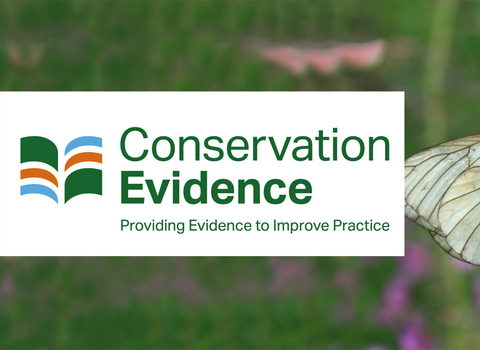
Credit: University of Cambridge
Evidence Champions
Surrey Wildlife Trust has committed to become an ‘Evidence Champion’ as part of a movement led by Cambridge University to build stronger links between academic researchers and front-line conservationists.
By working with Conservation Evidence, an international initiative to share and embed evidence and research into conservation practice, the Trust will ensure that it both accesses and uses the latest data from around the world to guide and inform its day-to-day work. The Trust will also be feeding back evidence into the system from what we observe on our reserves, making sure that we’ve designed robust experiments to test the effectiveness of our management.
Research news & highlights
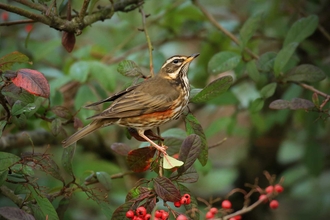
Surrey Species Search returns with new wild things to look out for this autumn
Surrey Wildlife Trust is asking people to report sightings of Muntjac deer, Redwings, Rowan trees, Fly Agaric fungi…and Giant House…

Old Grasslands Inventory points the way to protection for some of Surrey’s rarest habitats
Some of Surrey’s most delicate and biodiverse habitats – ancient grasslands once used for grazing but now havens for wildflowers and…
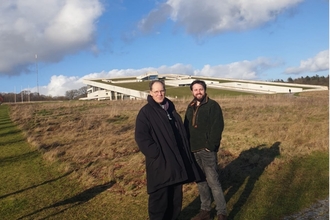
Heathland preservation: a pan-European priority
SWT’s GIS, Research and Monitoring Manager Ben Siggery explores the finding from international conference "A Place for the…
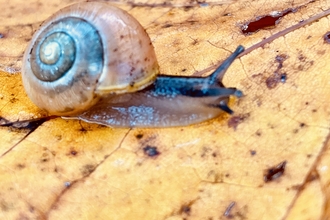
Which actions have the biggest impact for nature
Over the past nine months, Research Fellow Sarah Papworth has been working to identify which actions can have the biggest impact for…
New guide to Surrey’s rare and threatened plants will help safeguard fragile flora
Surrey Botanical Society and Surrey Wildlife Trust have teamed up to publish a new register of the rare, scarce and declining plants…

Exploring the challenges of combining public & private funding for farmers
Masters student Elva King explores the challenges associated with sustainable agriculture.

Tiny Forests: Big Solutions for Urban Biodiversity and Community Engagement
In their latest blog, student researcher Parth Pardeshi discusses their research into Tiny Forests as biodiverse wildlife havens and…
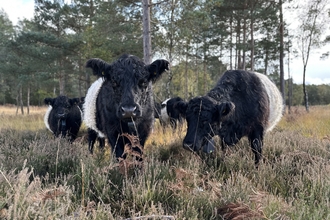
Cattle Grazing as a Conservation Tool
Brunel University of London masters student Regina discusses the findings of their analysis of GPS collar Nofence grazing data on…
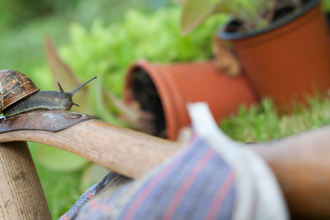
Wildlife gardening for hedgehog conservation
Research student Olivia Davis explores how we can best manage our gardens through wildlife-friendly features to support hedgehogs and…

